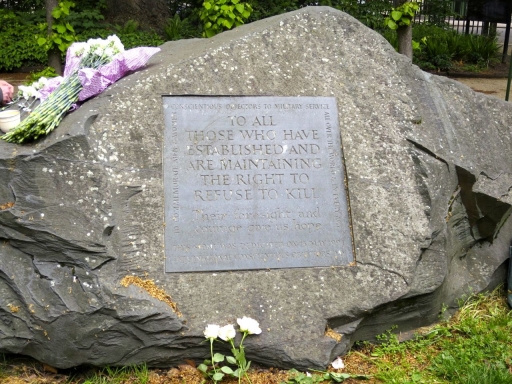Legislation imposing compulsory military service was passed by the British Parliament on January 27th 1916.
All single men aged 18-41 were liable for call-up under the Military Service Act, marking a break with long-standing tradition.
The measure provoked impassioned debate as it passed through parliament.
The Daily Telegraph noted ‘an astonishingly high level of eloquence and argument’ in the House of Commons.
Exemptions from the call-up could be claimed by men in essential wartime occupations, widowers with dependent children, ministers of religion and conscientious objectors*.
Cases were heard by a new system of Military Service Tribunals.
The legislation came into effect on March 2nd 1916, and was extended to married men later that year.
Britain, unlike the other great powers, entered the First World War in 1914 with a relatively small volunteer army of professional soldiers and reservists.
Hundreds of thousands of men responded to Lord Kitchener’s ‘Your Country Needs You’ recruiting campaign in the opening months of the war.
But this, and other increasingly coercive measures aimed at encouraging enlistment, were felt to be insufficient as the conflict wore on and demands for manpower grew.
For more on conscientious objectors, and the centenary of establishing legal recognition of individual conscience, visit the Quakers in Britain website.
Also in Centenary News:
Conscientious objectors remembered online by IWM’s ‘Lives of the First World War’.
Source: Wikipedia/Daily Telegraph/various
Images: Centenary News
Posted by: CN Deputy Editor
